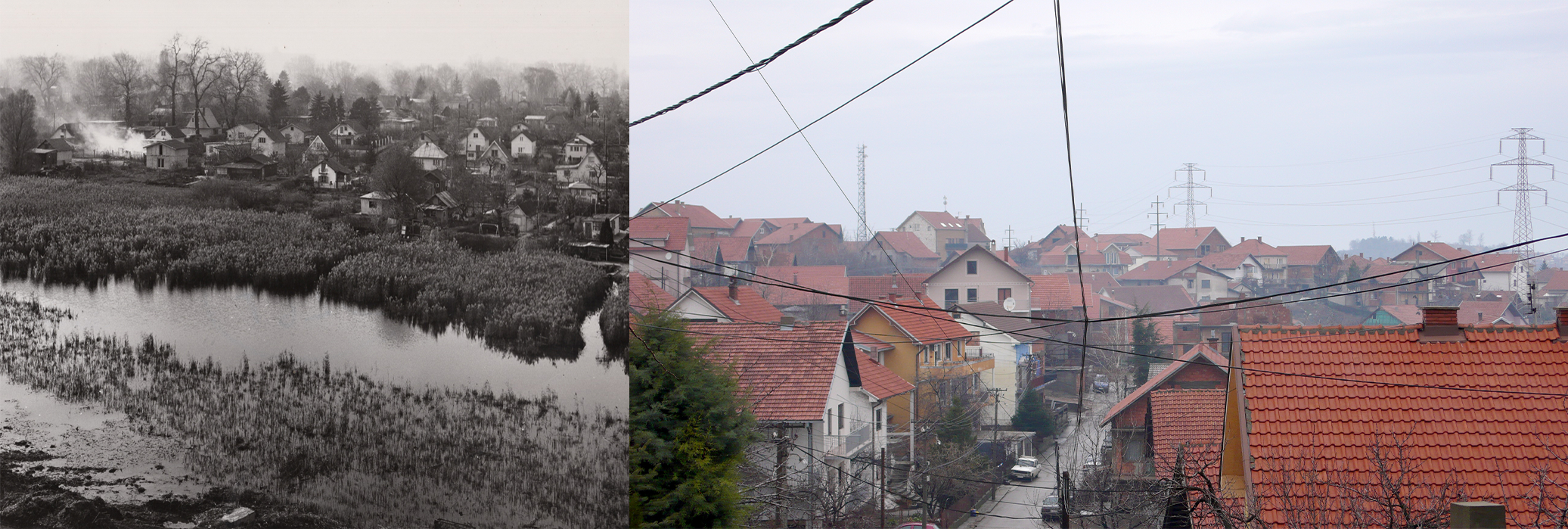After successful completion of the course, students are able to use the following methods:
- scientific working methods
- methods of urban analysis
- Stadtlektüre (= the art of making the urban and rural speak)
Weekly Feedback: Tuesday afternoon 16-19h - exact schedule to follow!
Symposium “Wien Informell”: May 16th 17-21h

Abb. li.: Wilde Siedlung im 22. Bezirk, Wien 1968 © WStLA
Abb. re.: Informelle Siedlung Kaludjerica bei Belgrad, 2010 © Dubravka Sekuli
Vienna, a city of slums and "wild" settlements? Europe, a continent marked by bottom-up urbanism? Cooperating with the current research project "Wien Informell – Informelle Stadtproduktion 1945–1992", the seminar is dedicated to the often neglected history of "wild" fringe zones throughout Europe, the unplanned urbanization in the 20th century and its traces that still exist in many places today.
Where and how did/does informal production of urban space take place? How do these developments and their impact on urban form differ between Vienna and e.g. Paris, Hamburg, Belgrade or Madrid? How did the settlements develop spatially, socially and legally? Why was the fringe zone formalized or cleared? In city walks, urban analyses, literature research and through texts and maps we will follow the wild settlers’ traces.
The concluding symposium of the research project "Wien Informell" (16.5.) is an essential part of the seminar. Among others, the Spanish scholar Noel Manzano Gómez will develop a comparative perspective on informal urban development in Europe in his lecture („The Reverse of Urban Planning“ – PDF).
Introduction and learning of the basics of scientific work (methodology, scientific writing, citing, publishing, ...)
German spoken and written at university level, English.
As we will venture into international scholarly literature we definetly welcome other laguage abilities (French, Croatian and Serbian, Spanish etc.)!